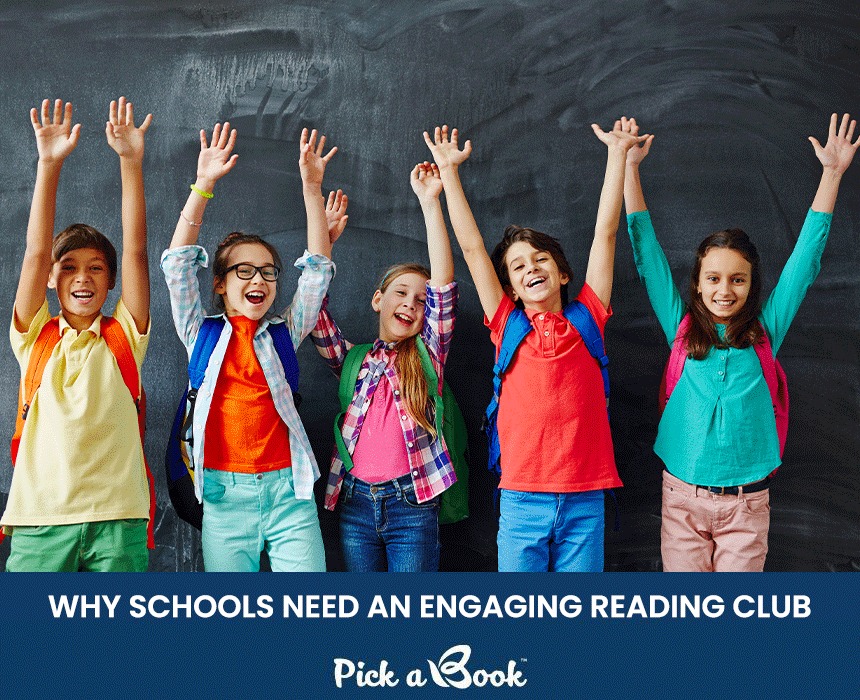Why schools need an engaging reading club
Reading is something that transcends age, gender, class, and race. It paves way for a magical journey to anywhere on Earth and beyond, at any point in time. The benefits that come with reading are numerous and as such, our kids, regardless of age or ability, deserve to unlock this magic and access the wonders of books. Once our kids become readers, they go on to develop a life-long adoration for literature. To stimulate and inculcate this lasting love for reading, it’s paramount that we help build a strong reading culture for them, especially in schools.
It’s definitely heartening to see that many schools, across the globe, have recognized the powerful impact reading can have on children and are working hard to inspire and engage students. Setting up a reading club has, so far, been one of the best ways to do this. In fact, reading clubs not only facilitate the habit of reading but also helps massively in developing self-motivation and social-emotional learning in students. Having an engaging reading club provides a safe place for kids to express themselves and have meaningful discussions with other kids and it can also support children to become more confident, widen their perspectives and repertoire of skills, refine their options, and so much more.
While informal, unplanned, and casual chats about books among students can have an impact, having a structured reading club can greatly transform a child positively. That's why it's important to put the time and thought into setting up a reading club and have a clear vision of what needs to be achieved.
Who will benefit from a reading club?
Book clubs in schools are often functional for only the accomplished readers in the school who may need the additional challenge. Although confident readers are a great audience, it’s of vital importance that other groups of kids also have access to a book club. The main purpose of a reading club should be to engage and challenge readers as well as aid in their development. Children who find reading a challenge stand to gain more from being part of a reading club and the benefits a club can have for them is definitely more when compared to fluent readers.
The opportunity to share the wonders of literature together is one that can help break barriers between kids and build confidence. Having the chance to discuss their opinions and learn from both their peers and the staff can really make a child thrive immensely.
Creating a strong reading culture
Building a strong reading culture helps put the love of reading at the forefront of school improvement. A creative and engaging reading culture not only helps develop capable and committed readers, but also increases a connection with the community, well-being, and good student outcomes. It has been proved, time and again, that creating a good reading culture in schools helps unlock the rest of the academic curriculum.
Children need high levels of literacy in numerous aspects of their lives. Our kids are exposed to a sea of information at all times for them to digest - at home, in school, on digital interfaces, etc. Reading will not only help them in the success of future employment, but the ability to read will also help kids in all their future endeavours and when navigating all aspects of their personal lives when they grow up.
Fluency in reading is a strong indicator of achievement in higher education and future employment. Becoming accomplished readers will definitely help kids eradicate early life disadvantages. Creating that nurturing reading culture in schools will help mould competent readers who can easily access the wonders of the curriculum and thus improve their life chances in the long run.
Unfortunately, children can be reluctant readers due to o a number of reasons like boredom, low self-esteem, or the inability to compete with fellow students. That’s why we need to work together to provide creative and unique solutions that can help lessen this disengagement in schools and bring about a reading culture that allows all kids to shine personally, socially, and academically.
How Pick a Book can help make a difference
Though Pick a Book may seem like your everyday book club, it’s, in fact, a structured and novel concept. Reading clubs are typically only limited to a region and they usually only tackle reading and discussing the contents of a book. Pick a Book, on the other hand, offers more than just that. It’s a platform for readers to come together, share their bookish findings, present and discuss books, inspire others, and forge meaningful interactions based on books.
Pick a Book also operates under different segments and the good news is that schools and universities have the chance to function as separate segments under Pick a Book. Pick a Book’s club structure for schools is wholly unique, revolutionizing the reading culture in a school by allowing students to be a part of a global book movement that helps create a positive impact. By integrating Pick a Book, schools can successfully create that ideal reading culture among students of all ages, paving the way for them to be well-rounded, accomplished individuals and future leaders of tomorrow.
With Pick a Book’s model of reading and presenting books, kids can also grow in confidence, improve their public speaking skills, discover new books and new friends, and above all, discover who they are. Pick a Book effectively helps kids on the road to self-discovery and self-esteem, both of which are crucial for their success in adulthood.
At the end of the day, there are really a plethora of benefits of joining a book club. A reading club can only encourage teamwork, nurture a child’s ability to listen and react, foster compassion and understanding, create a sense of community around books, and so much more. With books in their hands, our kids can only flourish and thrive, growing up to be the best version of themselves and valuable assets to society and the world around them.


